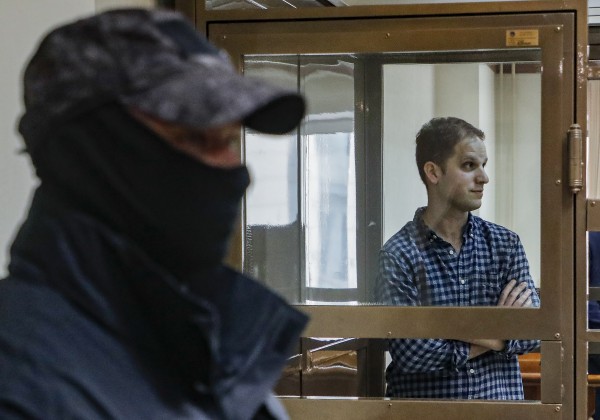Hundreds of demonstrators rallied Saturday in Kiev to protest against moves to silence independent Ukrainian broadcaster TVi ahead of parliamentary elections on Oct. 28.
AP reported that 1,500 people gathered in the centre of Ukraine’s capital in support of the broadcaster after the country’s leading cable television provider, Volia, on Wednesday transferred TVi’s signal to a more-expensive package.
A Volia representative, speaking with the Kyiv Post last month, claimed the move was a business decision. She denied an allegation by TVi head Mykola Kniazhytsky – who is seeking a seat in parliament on the United Opposition ticket – that the move came in response to government pressure.
However, Kniazhytsky told IPI that the provider had little choice. He said sources told him that Ukraine’s National Television and Radio Council threatened Volia with loss of its licence if it did not drop TVi’s signal altogether and that Volia’s transfer of the signal to its premium package represented a compromise that allowed TVi to remain on the air, albeit at greater expense to its viewers.
The Kyiv Post has reported that a monthly subscription to Volia’s premium package, on which TVi’s signal is now broadcast, is approximately 80 hryvnias (€7.74), nearly twice the 47-hryvnia-per-month fee for the standard package on which it previously appeared. Citing information provided by Volia, the newspaper said the provider’s standard package has approximately 250,000 subscribers in the capital, but the premium package has only 78,000.
Kniazhytsky predicted that the change could cost TVi up to two thirds of its viewers. In addition to Volia, three satellite broadcasters still carry TVi’s signal. However, Kniazhytsky said that government pressure had led approximately 85 cable television providers of various sizes throughout Ukraine to drop TVi’s signal in recent months, including 60 in August alone.
TVi’s editor-in-chief, Vitaliy Portnykov, said in a public appeal made before Volia transferred TVi’s signal that the number of viewers of analogue cable networks across Ukraine that had access to TVi dropped from nearly 13 million viewers in July to just over 9.5 million at the beginning of this month. That number included a drop from more-than-1.2 million viewers to 447,000 in Kiev alone, and a drop from approximately 5.4 million viewers to approximately 3.6 million in Ukraine’s eastern region.
TVi has served as one of the few independent voices in the country willing to air criticism of Ukrainian President Viktor Yanukovych and his administration. Kniazhytsky said that authorities were trying to silence TVi in order to avoid a repeat of the 2004 presidential election, when independent broadcaster Kanal 5 aired critical coverage of Yanukovych and exposed what Kniazhytsky labelled the government’s “falsification” of information.
That election ultimately resulted in the “Orange Revolution”, in which protesters forced a new election following an allegedly-rigged vote in favour of Yanukovych. His rival, opposition leader Viktor Yushchenko, triumphed in the second poll, but infighting among the Orange coalition ultimately led to Yanukovych’s defeat of Yulia Tymoshenko in the 2010 presidential election.
International Press Institute (IPI) Deputy Director Anthony Mills said: “Despite the stated rationale, this move appears to be the latest in a long line of actions intended to cow TVi and independent media into submission. It is all the more disturbing that it comes just seven weeks before the people of Ukraine vote on who will lead them in parliament. IPI and its affiliate, the South East Europe Media Organisation (SEEMO), call on Ukraine’s government to respect independent media and the Ukrainian people’s right to have the information they need to make reasoned decisions about their future.”
The alleged pressure on cable television providers to drop TVi’s signal is only the latest in a series of moves targeting the broadcaster. In July, tax police raided the station and prosecutors opened a criminal case against Kniazhytsky for tax evasion. The case was dropped, reportedly for lack of evidence, but Kniazhytsky said today that a court hearing is scheduled for later this week that could bring the case back to life. He predicted the case could lead to further court cases against TVi and he said the station risked potential fines totalling 9 million hryvnias (more than €865,000), an amount he said would cripple TVi’s ability to continue broadcasting.
In January 2011, Ukraine’s Higher Administrative Court upheld a decision preventing TVi and Kanal 5 from broadcasting on analogue broadcast frequencies following allegations of irregularities in the manner in which the stations were awarded licences. TVi was limited to broadcasts on cable television and representatives told an IPI/SEEMO delegation visiting Kiev in June 2011 that government regulators at that time had begun using pretexts to pressure cable television providers into not extending contracts with the channel.


